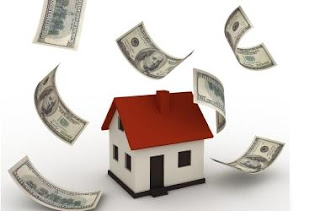 Mortgage Refinance Information
Mortgage Refinance InformationA mortgage refinance creates an entirely new mortgage. This mortgage replaces the old. Therefore the process is very similar to acquiring the original loan. Getting a mortgage loan is an extensive process. You have to review your credit, compare lenders, and pay fees associated with mortgages. Common mortgage fees also apply to refinancing your home.
Why Refinance Home Mortgage Interest Rate
Some mortgage experts suggest that the time to refinance is when your
current mortgage rate is about two percentage points above the market
trend. If you refinance with a one point different, the savings are small
and not worth the refinancing costs. This is a great option for those
who purchased their homes when mortgage rates were at 8 or 9 percent.
current mortgage rate is about two percentage points above the market
trend. If you refinance with a one point different, the savings are small
and not worth the refinancing costs. This is a great option for those
who purchased their homes when mortgage rates were at 8 or 9 percent.
An interest rate drop will cause a reduction in your monthly mortgage
payment.An additional reason for refinancing your present mortgage is to get a
fixed rate mortgage. Today, there is a variety of loan programs. These
include adjustable rate mortgages, interest-only mortgages, etc.
Initially, these loans carry low interest rates. However, because the rates
are not fixed, they may increase. As mortgage rates increase, so does
your mortgage.
fixed rate mortgage. Today, there is a variety of loan programs. These
include adjustable rate mortgages, interest-only mortgages, etc.
Initially, these loans carry low interest rates. However, because the rates
are not fixed, they may increase. As mortgage rates increase, so does
your mortgage.
Home Mortgage Refinance Costs
If you are hoping to get a fixed rate mortgage or a lower interest
rate, be prepared to pay closing costs and mortgage fees. The fees for
mortgages vary. On average, you can expect to pay 3 to 6 percent of the
total loan amount. This does not include down payments.
Typical mortgage fees include application fee, appraisal fee, hazard
insurance, attorney's fee, title search, home inspection, loan
origination fee, and mortgage insurance. To obtain a lower rate, you may have to
pay points. If you refinance with your current mortgage lender, some
fees may be waived.
If you are hoping to get a fixed rate mortgage or a lower interest
rate, be prepared to pay closing costs and mortgage fees. The fees for
mortgages vary. On average, you can expect to pay 3 to 6 percent of the
total loan amount. This does not include down payments.
Typical mortgage fees include application fee, appraisal fee, hazard
insurance, attorney's fee, title search, home inspection, loan
origination fee, and mortgage insurance. To obtain a lower rate, you may have to
pay points. If you refinance with your current mortgage lender, some
fees may be waived.


No comments:
Post a Comment